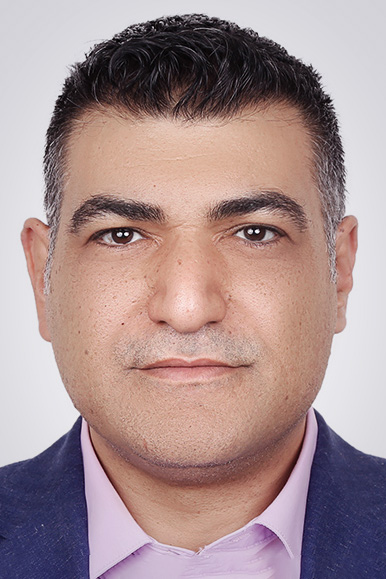

 The UN's move to grant permanence to the Internet Governance Forum reframes legitimacy in digital policy. As states accelerate action, multistakeholder processes risk becoming ceremonial, with speed replacing consent as the arbiter of influence. more
The UN's move to grant permanence to the Internet Governance Forum reframes legitimacy in digital policy. As states accelerate action, multistakeholder processes risk becoming ceremonial, with speed replacing consent as the arbiter of influence. more
The Nauruan government says ban on websites such as Facebook is to protect its citizens from "abuse, harassment and bullying" as the United Nations urges the island's controversial regime to lift its ban on freedom of expression and human rights. more
In a Renesys blog post, James Cowie writes: "Why did Libya put its Internet in 'warm standby mode' instead of just taking it down, as Egypt did? Perhaps because they're learning from Mubarak's experience. Cutting off the Internet at the routing level (powering down the Internet exchange point, going after the remaining providers with secret police to enact a low-level shutdown) was a technically unsophisticated desperation move on Egypt's part." more
 The Kingdom of Saudi Arabia (KSA) will host the Internet Governance Forum in December. There are four main themes -- innovation and risk; the impact of technology on peace and development; using technology to advance human rights; and improving digital governance. Every IGF is a unique and annual opportunity for thousands of people engaged in key issues to come together and engage. KSA is hosting for the first time, and it is an exciting prospect. more
The Kingdom of Saudi Arabia (KSA) will host the Internet Governance Forum in December. There are four main themes -- innovation and risk; the impact of technology on peace and development; using technology to advance human rights; and improving digital governance. Every IGF is a unique and annual opportunity for thousands of people engaged in key issues to come together and engage. KSA is hosting for the first time, and it is an exciting prospect. more
The IANA Stewardship Transition Coordination Group (ICG) on Friday released for public comment the proposal for the transition of the stewardship of the Internet Assigned Numbers Authority (IANA) functions from the U. S. Department of Commerce's National Telecommunications and Information Administration (NTIA) to the global multistakeholder community. The ICG is encouraging the public to review the proposal and share their reactions and comments during the public comment period here. more
The Internet Society's President and CEO, Kathy Brown, has highlighted how connecting the unconnected and building trust are the two most pressing imperatives facing the Internet today. more
 Ten years ago, global representatives assembled in Geneva in 2003, and again in Tunis, 2005, as part of the two founding phases of the World Summit on the Information Society (WSIS). At the heart of proceedings, attended by representatives from across the spectrum of business, government, civil society, and the Internet technical community, was an acknowledgement that an inclusive approach was needed in all discussions pertaining to Internet governance and policy-making, to overcome the primary challenges in building this 'Information Society.' more
Ten years ago, global representatives assembled in Geneva in 2003, and again in Tunis, 2005, as part of the two founding phases of the World Summit on the Information Society (WSIS). At the heart of proceedings, attended by representatives from across the spectrum of business, government, civil society, and the Internet technical community, was an acknowledgement that an inclusive approach was needed in all discussions pertaining to Internet governance and policy-making, to overcome the primary challenges in building this 'Information Society.' more
 A few weeks ago, a new vacancy was added to the UN Webpage for Senior Leadership Positions, inviting applications to become the new Tech Envoy. This position has a long and unfortunate backstory. It was created in 2019 as a new role, as an outgrowth of the UN's High-Level Panel on Digital Cooperation and the UN Secretary General's Roadmap for Digital Cooperation -- with a vague remit to "advise senior leadership of the United Nations on key trends in technology and... more
A few weeks ago, a new vacancy was added to the UN Webpage for Senior Leadership Positions, inviting applications to become the new Tech Envoy. This position has a long and unfortunate backstory. It was created in 2019 as a new role, as an outgrowth of the UN's High-Level Panel on Digital Cooperation and the UN Secretary General's Roadmap for Digital Cooperation -- with a vague remit to "advise senior leadership of the United Nations on key trends in technology and... more
 The "Decoding Internet Governance Stakeholders" series of articles invites the community to ponder what underlies the labels that define our interactions, roughly 20 years after the "Tunis Agenda for the Information Society" called for the "full involvement of governments, business entities, civil society and intergovernmental organizations", as well as to "make full use of the expertise of the academic, scientific and technical communities". more
The "Decoding Internet Governance Stakeholders" series of articles invites the community to ponder what underlies the labels that define our interactions, roughly 20 years after the "Tunis Agenda for the Information Society" called for the "full involvement of governments, business entities, civil society and intergovernmental organizations", as well as to "make full use of the expertise of the academic, scientific and technical communities". more
Governments are toying with the idea of asking ICANN for greater powers over gTLDs that match their geographic features," Kevin Murphy reporting in Domain Incite. more
The Internet Society (ISOC) Board of Trustees today passed a resolution to strongly support the plan developed by the global Internet community presented to the U.S. National Telecommunications and Information Administration to transition oversight of key Internet resources. more
Kieren McCarthy reporting in the Register: "The process to bring greater accountability to domain-name overseer ICANN descended into farce last week when the organization's board tried to skewer plans to force it to answer to the internet community while simultaneously claiming it supported the idea. more
The International Chamber of Commerce (ICC) has announced plans to use its presence at the 7th annual Internet Governance Forum (IGF) next month to reinforce the value of a multistakeholder approach to public policy development. more
 This past meeting of the Internet Corporation for Assigned Names and Numbers (ICANN), ICANN67, was intended to be held in person in Cancun, Mexico, but was actually the first meeting to be held entirely online and virtually. It was a well-managed affair with fewer sessions than the in-person meetings and less opportunity for the community to convene and meet as individuals. The last-minute change from an in-person to a virtual meeting impacted ICANN's ability to provide translation services for the full set of UN-supported languages, Arabic, Chinese, English, French, Russian, and Spanish. more
This past meeting of the Internet Corporation for Assigned Names and Numbers (ICANN), ICANN67, was intended to be held in person in Cancun, Mexico, but was actually the first meeting to be held entirely online and virtually. It was a well-managed affair with fewer sessions than the in-person meetings and less opportunity for the community to convene and meet as individuals. The last-minute change from an in-person to a virtual meeting impacted ICANN's ability to provide translation services for the full set of UN-supported languages, Arabic, Chinese, English, French, Russian, and Spanish. more
ICANN released a report today announcing that a diverse global group of stakeholders from government, civil society, the private sector, the technical community and international organizations has formed a Panel on the Future of Global Internet Cooperation. The Panel's first meeting is scheduled for December 12 13 in London. more